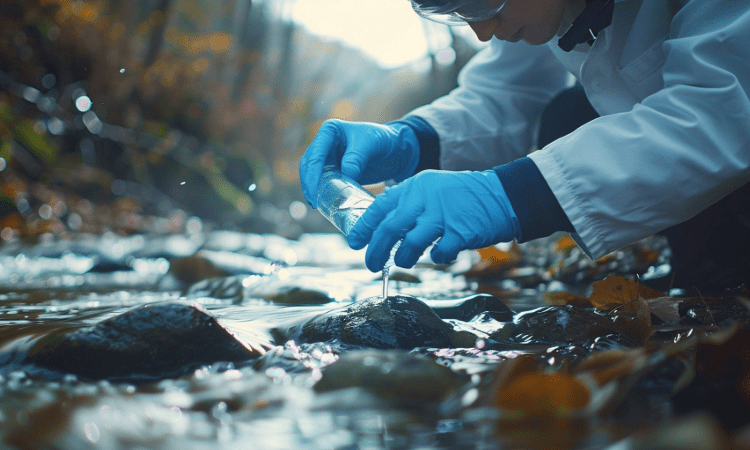
BLOG
KATEGORİDEKİ DİĞER YAZILAR

Groundwater is considered a vital resource for both human health and natural ecosystems. Used in different sectors such as drinking water, agriculture and industry in daily life, it is a sensitive resource that needs to be protected through sustainable water management. However, groundwater is under great risk due to industrial wastes, agricultural activities, urbanization and unplanned use of water resources. In Turkey, the Regulation on the Protection of Groundwater against Pollution and Degradation provides a comprehensive approach to protect this valuable water resource. We will focus on the purpose of the Regulation, the protection measures it covers and its importance for the protection of groundwater resources.
The purpose of the Regulation is to ensure the protection of groundwater against pollution and degradation and to establish a long-term resource management by protecting the quality of these waters. Accordingly, it aims to identify and control activities that may harm groundwater and to reduce the impacts of such pollutants. The Regulation includes detailed provisions on the determination and monitoring of groundwater quality and prevention of pollution risks.
Groundwater, which is protected under this regulation, has an important place in the supply of drinking and potable water. The Regulation includes comprehensive measures for the protection of drinking water reserves, sustainability of ecological balance and reduction of risks to human health.
The Regulation provides specific measures to protect groundwater. The most important of these are:
Groundwater plays an important role in the water cycle of natural ecosystems. There is a balance between surface water and groundwater, and this balance directly affects ecosystem health. Groundwater contamination poses serious threats not only to people who use it directly, but also to wildlife. For example, wetlands and ponds are natural outlets for groundwater, and contamination there can affect an entire ecosystem. The Regulation supports the sustainability of these ecosystems by ensuring the protection of groundwater.
One of the most important ways to protect groundwater is to use the resource responsibly. Excessive and unnecessary use of water can lead to depletion of water tables and lower water levels. This paves the way for serious problems such as drought and water scarcity. The Regulation encourages the sustainable use of groundwater resources and aims to raise awareness on water conservation.
As a country developing both in agriculture and industry, Turkey has to take steps to protect its water resources. Sustainable management of groundwater is critical to reduce the risk of water scarcity and ensure safe water for future generations. This regulation demonstrates the government's commitment to groundwater protection and contributes to raising water awareness among individuals and institutions.
Groundwater analysis serves the needs of different sectors and purposes. It plays critical roles such as assessing the environmental impacts of projects in EIA processes, providing environmental permits and discharge criteria in industrial facilities, determining the suitability of irrigation waters in agriculture, monitoring hydrogeological impacts in mining and energy sectors, and controlling drinking water quality for health and public safety. It is also indispensable for environmental protection efforts, natural resource management, legal processes and scientific research. These analyses are vital in ensuring groundwater protection, sustainable use and prevention of pollution risks.
Nanolab offers the most reliable and fastest solution to protect the future of water in accordance with the Groundwater Protection Regulation. It meticulously analyzes the chemical, biological and physical parameters of water to prevent contamination of groundwater resources and ensure sustainable water management. Thanks to ISO 17025 accreditation, analysis results are internationally recognized and groundwater quality is accurately assessed. With its wide range of equipment and expert technical team, it completes groundwater analysis efficiently and quickly. Thanks to its regulatory expertise, the Groundwater Protection Regulation and other legal requirements are fulfilled in full. Nanolab stands out as the address where quality, reliability and speed combine in groundwater analysis.
Contact us for more information.
Follow us on LinkedIn for up-to-date news and posts about our services.
Follow our Instagram account to stay up to date with our latest blog posts.